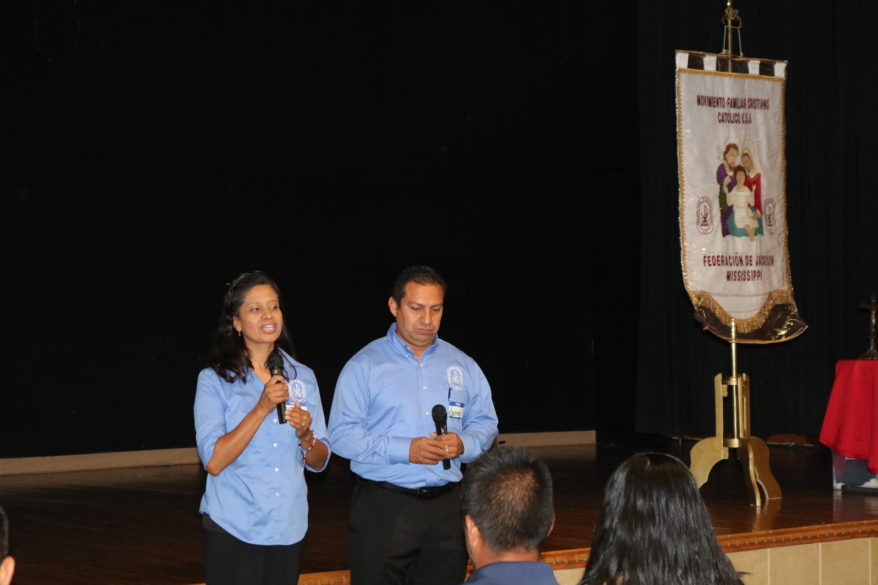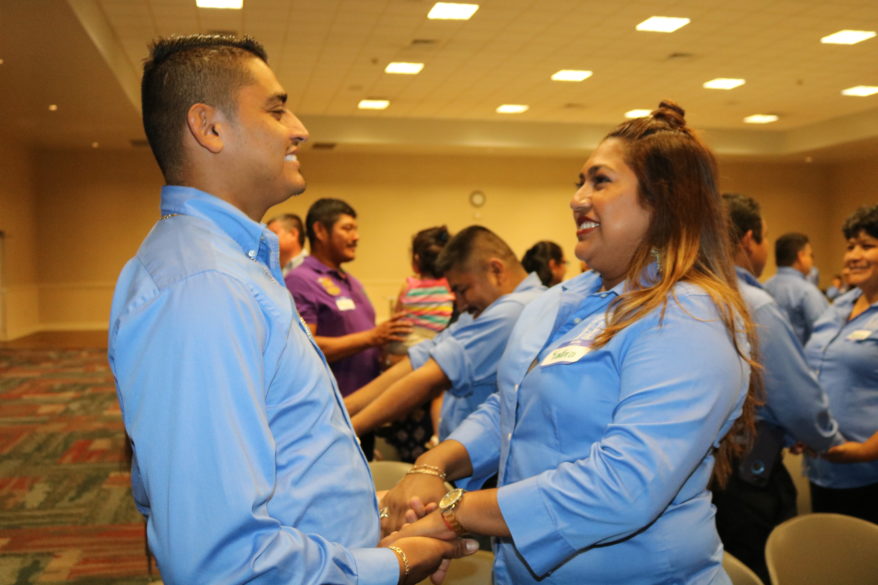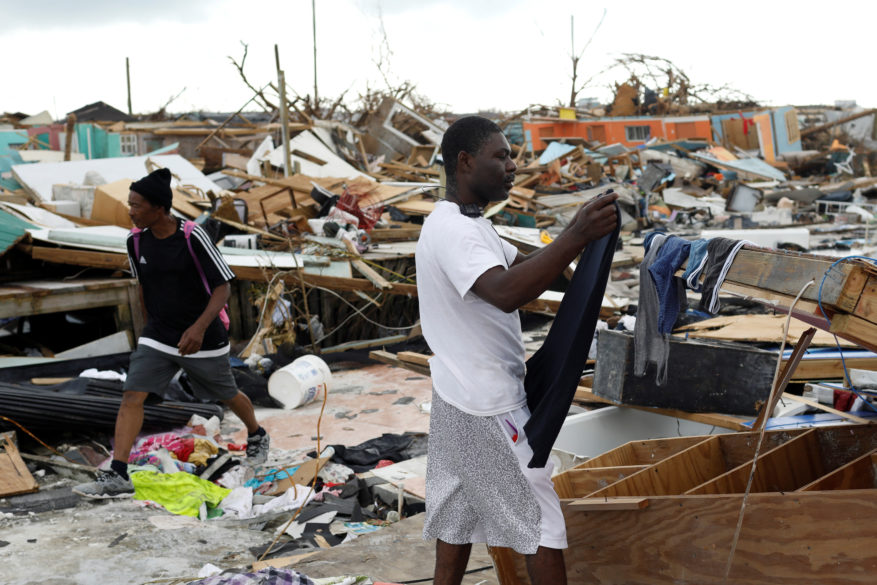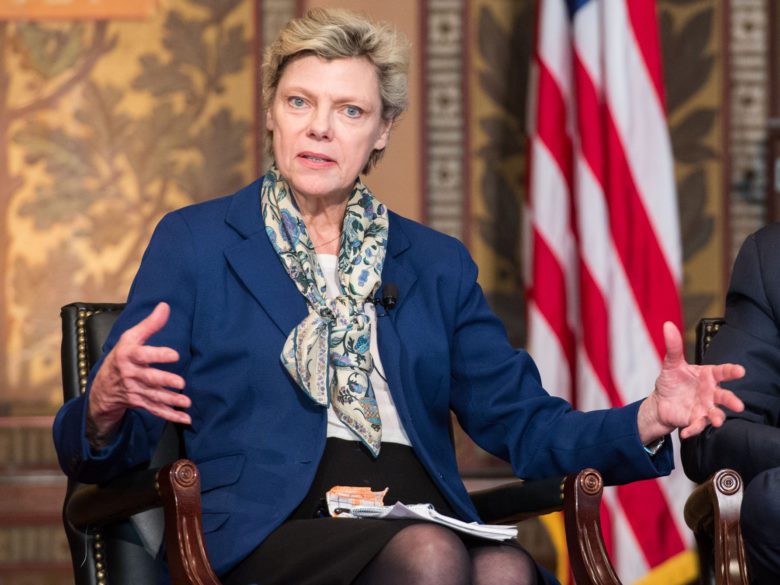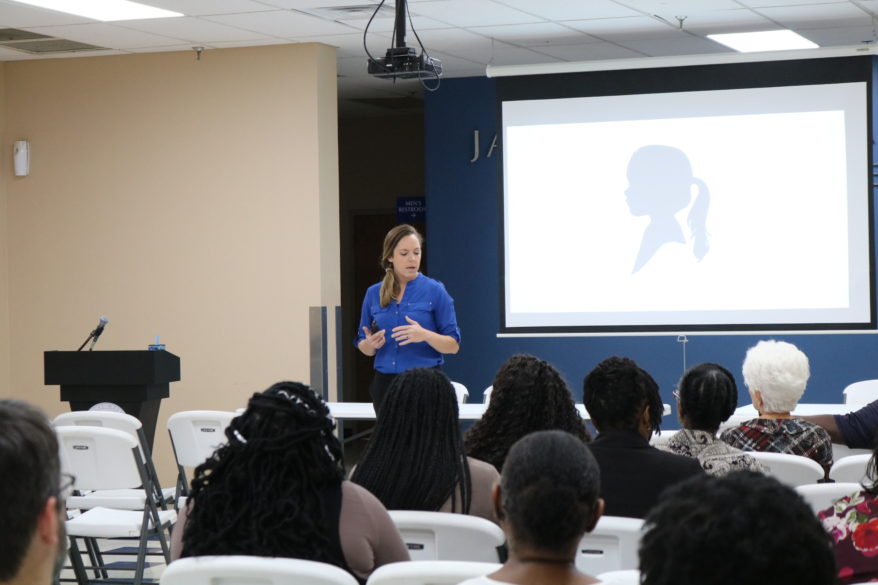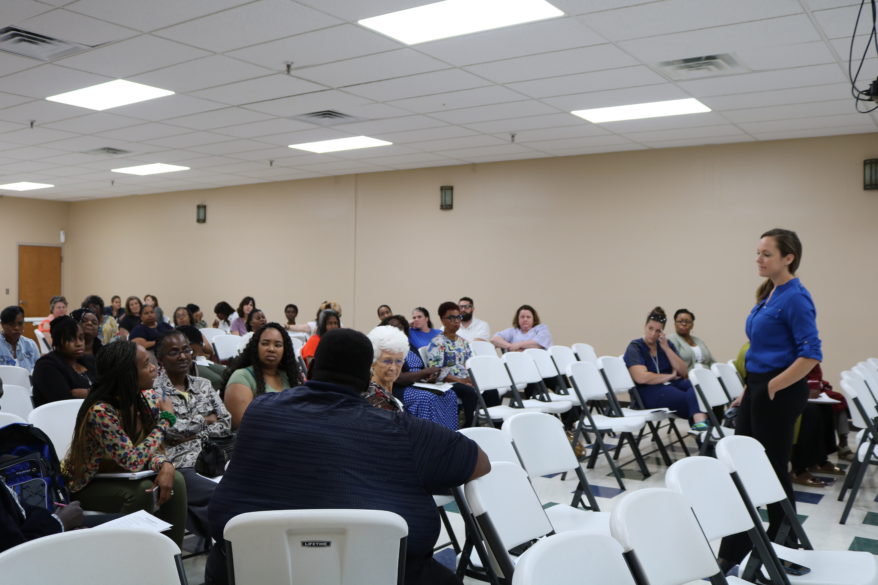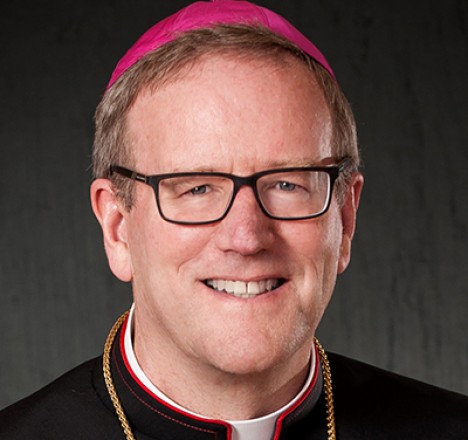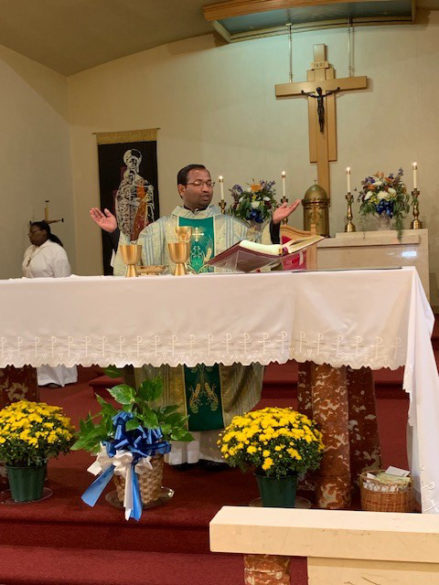SPIRITUAL ENRICHMENT
BROOKSVILLE The Dwelling Place, Transitions and Transformation, Oct. 11–13, begins with dinner at 6:30 p.m. Am I in transition in retirement, in my workplace, my family, my residence, my relationship or health? The weekend will explore these issues. Facilitators: Dr. Francis Baird, LPC, who has a private counseling practice in Columbus and Starkville and Clare Van Lent, MA CSp., Dwelling Place Director. Donation: $180. Details: (662) 738-5348 or email dwellpl@gmail.com.
HOLLY SPRINGS Hands–ON + Hearts–IN is a program is to assist women who are discerning a call to consecrated life through hands-on service to the needy throughout north Mississippi. Monday – Thursday, Oct. 21–24. This program, coordinated by the Sisters of the Living Word, is a collaborative effort between the Chicago Archdiocesan Vocation Association (CAVA) members and Sacred Heart Southern Missions (SHSM). The hospitality team will be the Sisters of the Living Word. They previously will be offering the meals and a comfortable home base for the prayer and discernment aspects of the experience. Details: contact Sister Sharon Glumb, SLW at handsonheartsin@gmail.com or (847) 577-5972 Ext# 233.
METAIRIE, La. Catholic Charismatic Renewal of New Orleans (CCRNO), Torrent of Grace, An Evening of Worship, Sunday, Nov. 10 at 7:30 p.m. at St. Benilde cafeteria, 1901 Division Street. The evening features “Overshadow Me” with Sean Tobin, composer and worship leader from Los Angeles. The sole purpose of this gathering is to seek God, to worship and experience the presence of the Holy Spirit. Everyone is invited who desires to spend an evening with prophetic, spirit–filled music and praise. There is no charge, but a love offering will be received. Details: www.ccrno.org; info@ccrno.org or (504) 828-1368.
NASHVILLE, Tenn. National Catholic Singles Conference, Oct. 25–27. Join hundreds of single Catholics from across the country at the Diocese of Nashville Catholic Pastoral Center. The weekend includes talks by dynamic speakers (Sr. Helena Burns, Dr. Kerry Cronin, Damon Owens and David Clayton) as well as music, social events, prayer, food, fellowship and more. Space is limited. Enter promo code NASH19 for a $20 discount. Details: For more information and to register visit www.NationalCatholicSingles.com. or call Mirjana Northrop at (512) 766–5798 or email natcatsingles@gmail.com.
PEARL St. Jude – The Marian Servants of Jesus, the Lamb of God, invites you to a “Come and See” open house, Tuesday, Oct. 8, from 6:30–8:30 p.m. An opportunity for you to learn about the Marian Servant Community. Details: Contact Teresa Preuss (601) 906–1338, tepreuss@yahoo.com, or Maureen Roberts (601) 278–0423 mmjroberts@gmail.com.
STANTON, Tenn, Worldwide Marriage Encounter Weekend, Oct. 25–27 at Our Lady Queen of Peace Retreat Center. Details: Norman and Barbara Sobota at (901) 373-7030 or email sobota@bellsouth.net.
PARISH, SCHOOL AND FAMILY EVENTS
ABERDEEN St. Francis, Adult Bible Study, Tuesdays at 11 a.m. Studying the Gospel of John. Details: church office (662) 813-2295.
BATESVILLE St. John, Knights of Columbus are holding a Rummage Sale, Friday, Nov. 1, from 9 a.m. to 6 p.m. and Saturday, Nov. 2 from 7 a.m. to 3 p.m. Please donate any clean, unbroken, gently used items that you no longer need. Details: church office (662) 563-2273.
BROOKHAVEN St. Francis, 153rd Francis Fest (formerly known as Parish Picnic), Sunday, Oct. 6, Mass at 10 a.m., Lunch, bingo, games and jumpers for the kids. Details: church office (601) 833-1799.
OLIVE BRANCH, Queen of Peace, Prayer and Worship Course taught by Sister Emily, Thursdays, Oct. 3 until Nov. 21 at 6:45 pm. The focus of the classes will be a better understanding of the liturgy and of various prayer forms. The texts that will be used are Introduction to Christian Worship, third edition and We Worship: A Guide to the Catholic Mass. Details: ctksemily@aol.com or the church office (601) 895–5007.
JACKSON St. Richard, Evening with Mary, Tuesday, Oct. 8 at 6 p.m. in Foley Hall. KC Williams, local artist, and Suzan Cox will team up to show the different ways people picture our Blessed Mother. The evening is a time for women to listen to speakers and share a dessert and conversation. There is no cost. Deadline to register is Oct. 4. Social begins at 6 p.m. with speakers starting at 6:30 p.m. Details: Suzan Cox at (601) 366-2335 or cox@saintrichard.com.
MADISON St. Francis of Assisi, Father Nick Adam, Parochial Vicar at Jackson St. Richard, will be discussing “The Power of Silence,” Monday, Sept. 30 and Tuesday, Oct. 1. In our society, our access to silence is pretty much zero. We are constantly bombarded by noise of one kind or another. But in order to encounter the Lord Jesus Christ, we have to make room for silent prayer so we can hear the Lord’s call above all the noise. These nights will include Adoration of the Blessed Sacrament and Benediction, along with a meal. Details: church office (601) 856–5556.
MERIDIAN Catholic Community of St. Joseph and St. Patrick, October Festival 2019, Saturday, Oct. 5 from 11 a.m. to 2 p.m. Includes health fair, hispanic cultural dishes, fun games for children, escape room for teens, country store and white elephant store (7 a.m. to 12 p.m.). Fish and rib plates $10; Rib slabs $20. Details: (601) 938–1337 or (601) 227-1199 to make donations (no clothing please).
VICKSBURG St. Paul will host a six-week adult catechesis program, The Mass, where Father Rusty Vincent will outline each part of the Mass, its Scriptural foundation and the reasoning behind responses and gestures. It will start Wednesday, Sept. 25th at Farrell Hall. Meals are served for $5. If you would like to attend, please email Rebecca Weatherford at faithformation@stpaulvicksburg.org. or church office (601) 636-0140.
YOUTH BRIEFS
JACKSON Sister Thea Bowman School, registration is underway for the 2019–20 school year. If you are looking for a solid academic education rooted in Gospel values serving grades PreK3 – 6th grades. Details: Shae Goodman-Robinson, principal at (601) 506-8998 for more information.
MADISON St. Anthony, Open House and Fall Festival, Saturday, Nov. 2 from 2-5 p.m. There will be games, carnival food and hayrides. Details: school office (601) 607-7054.
RIDGELAND St. Francis of Assisi, Senior Bible Break, Wednesdays from 6-7 p.m. at M7 Coffee House, 111 North Wheatley Street in Ridgeland, for all 12th graders for scripture sharing and fellowship. Bring a Bible and friends are welcome. Details: church office (601) 856-5556.
IN MEMORIAM
Long-time resident of Vicksburg, Sister Mary Fatima Starks, died Wednesday, Sept. 18, 2019, in Mobile, Alabama. A Sister of Mercy for 72 years, she was 90 years old.
Sister Fatima ministered in education, as a teacher and principal at schools in Mississippi, Louisiana, Illinois and Pennsylvania. Of her 60 years in active ministry, all but 3 years were spent serving the people of Mississippi. She gave over 30 years of service to Vicksburg Catholic school. Most recently, before moving in 2016 to the Convent of Mercy in Mobile, she served as a volunteer at St. Francis Xavier Elementary School in Vicksburg, Mississippi.
A funeral Mass was celebrated Monday, Sept. 23 at Corpus Christi church in Mobile. Sister Fatima’s burial took place at Cedar Hill cemetery in Vicksburg, Tuesday, Sept. 24.
